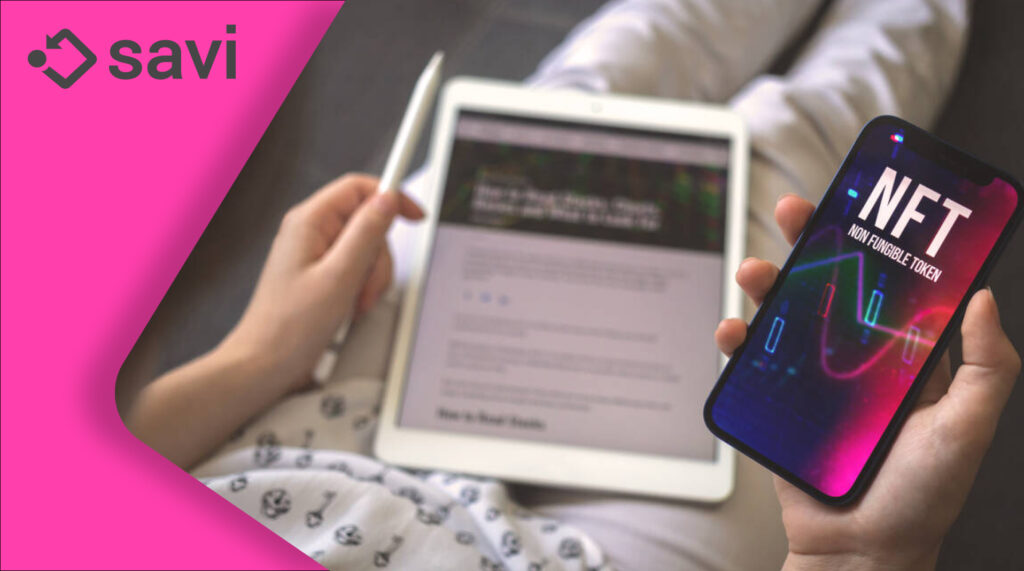Non-Fungible Tokens are a new type of digital token that has recently been gaining popularity with the broader crypto community. They also represent an existing new frontier for developers working in the blockchain space. Many naysayers continue to claim that we’re in a “bear market” and that projects built on top of blockchain technology are overvalued.
However, these sceptics couldn’t be more wrong about the current state of the crypto space and it’s potential moving forward.
Recent innovations like NFTs are just the beginning and we expect to see even more innovations as time goes on.
Let’s take a closer look at how NFTs are changing the world of cryptocurrency and why they represent such an important development going forward.
Why Non-fungible Tokens matter?
Non-fungible tokens have a lot of potential uses, but they’re especially useful in situations where you might want to represent digital ownership of something that can’t be easily duplicated, such as collectibles or real estate. The most common example is in gaming contexts.
When you buy an NFT, you don’t just get the right to use it, you become the owner of that specific token. As long as it remains valuable and popular in the game, it will remain valuable and popular for its owner.
Why they’re changing the world?
Although NFTs are a new kind of token, they work with all kinds of blockchain systems. They can be used alongside other types of tokens and cryptocurrencies on Ethereum or NEO blockchains, for example. NFTs are also gaining traction because they offer flexibility — users don’t have to worry about whether their tokens will be interchangeable with others when they buy them.
With NFTs, each token is unique and can only be owned by one person at a time.
NFTs are also a great way to foster a sense of community and build loyalty among game players. An NFT can be customised with images, text, or other details that make it feel more personal and unique. This can help gamers feel like they’re part of something bigger than themselves — even if they’re just playing a virtual collectible card game, for example — and this sense of belonging can encourage them to continue playing.
Gaming with NFTs

Let’s start with gaming. In early 2019, Fortnite gamers were introduced to the concept of NFTs when Epic Games announced that a new set of in-game items were non-fungible: a pair of dance moves and a pickaxe. The game’s developers did something clever: they created the first-ever non-fungible token that was tradable outside the game.
This meant that players could buy and sell those items in the open market, making them the first digital assets to have a real monetary value. As a result, one player could pay another real money for a dance move or even the pickaxe.
That’s the power of non-fungible tokens: they aren’t just representations of digital assets; they are digital assets themselves. This means that developers can create unique assets that represent real value and interact with the real world through unique wallets and trading platforms.
What types of games will benefit from Non-Fungible Tokens?
Some gaming projects already offer NFTs as rewards for playing their games or as part of their gameplay mechanics (i.e., non-fungible tokens give players access to special levels, items or upgrades). But what about the future of gaming? How can non-fungible tokens enhance the gaming experience for players? Here are a few examples of how NFTs could impact gaming:
- Game collectibles
If a game has its own internal economy, players can use NFTs as an alternative to fiat currency to buy and sell in-game items.
For example, if you want to buy a rare sword for your character in a role-playing game, you could purchase it with fiat currency or with the in-game currency. But if that sword is unique and one of a kind, it might be worth more than the in-game currency (i.e., gold) that it would take to buy it, so you might be incentivised to use an NFT instead.
This makes NFTs especially valuable for gamers who already have extensive collections of digital items or who are willing to spend money on games they love.
- Digital art
Just as with collecting physical art pieces, people can buy digital art with NFTs and display it on their computers or their smartphones (or other devices). For example, if someone creates digital art in Minecraft — perhaps by building something cool — they could sell it for an NFT to another player.
- Collectibles with NFTs
The collectibles industry is worth billions of dollars. You can buy everything from stamps to antiques or rare pieces of artwork. Some collectors are willing to pay millions for a single item, and in the process, they often create new industries that help preserve and protect the world’s cultural heritage.
The collectibles industry is big business, but it has a problem: it’s centralised. Its entire ecosystem is controlled by a handful of auction houses and companies like eBay and Amazon that charge fees for their services. This means that most collectibles are more expensive than they need be, making them less accessible to the average person who might not have thousands of dollars lying around to invest in a piece of artwork or antique watch.
Non-fungible tokens can change all that by decentralising the collectibles market and transforming it into an open network where anyone can buy, sell or trade items with no middleman involved. This is why NFTs are so exciting: they can transform an entire industry by bringing it into the digital age while lowering fees and increasing accessibility for everyone.
4. Digital Artwork with NFTs

Digital artwork is another space where NFTs make a lot of sense. One of the most interesting NFT use cases comes from Vogo, an art marketplace where artists create and sell their work on the blockchain. Vogo’s platform is designed to make it easy for artists to make reproductions of their work, as well as offer special items like prints with a limited number of copies.
When each piece is created, the Vogo platform issues a unique token representing the artwork. This means buyers can use the blockchain to prove they own a specific piece — no more arguing over who owns what when you have the title on the blockchain.
5. Real Estate with NFTs
Real estate is another promising NFT use case. Propy makes it possible to trade properties on the blockchain, issuing a token for each property. These tokens are non-fungible, meaning each is different and represents a unique property.
With NFTs, each token can contain all the necessary information about a property — from location to ownership history. As a result, owners can use the blockchain to prove ownership and quickly transfer the title. This is especially useful for international real estate purchases, where the process often involves handling lots of bureaucracy and paperwork.
6. Security with NFTs
Security tokens are non-fungible tokens that represent real-world assets like equity in a company or revenue from a piece of property. Onchain, a Hong Kong-based blockchain company, has launched a platform that makes it easy for companies to issue security tokens. Onchain’s security tokens are non-fungible tokens designed to comply with government regulations.
This means that businesses can use security tokens to raise money from investors without having to comply with strict regulatory requirements. If these security tokens include information about who owns each token, as well as the value of the token, it’s easier for companies to comply with securities laws. This makes security tokens a good candidate for NFTs because they can contain a lot of information.
The benefits of NFTs include:

1. Eligibility: Every individual NFT is unique, so it’s easy for anyone to trade them for other items.
2. Trust: The blockchain provides trust because it’s distributed and decentralised across multiple nodes. The public ledger also makes it easier to verify ownership.
3. Control: Users have control over their own data and can decide whether to sell or transfer their tokens at any time. This is especially useful when users need to take legal action or transfer titles quickly without having to go through a lot of paperwork.
4. Security: Security tokens have more built-in information about who owns each token, as well as its value, making them safer than other digital assets.
5. Flexibility: You can use security tokens to represent a piece of real estate or a financial instrument. This makes them flexible and useful in many different situations.
6. Transparency: The blockchain makes it possible for anyone to view an entire transaction history with any security token at any time, making it easier to verify the authenticity and ensure that all transactions are done legally.
7. Accessibility: The blockchain allows users worldwide to access their data on their own terms without having to go through third parties like banks or credit card companies. It’s also more secure than traditional methods of storing data online because there’s no centralised server that can be hacked or compromised.
In conclusion
Non-Fungible Tokens (NFTs) are changing the world of cryptocurrency, and the world will likely see more of them in the future. Some believe that NFTs will be one of the biggest trends in 2029, and we’re already seeing a lot of interest from companies and individuals alike.
So far, three types of tokens can be categorised as Non-Fungible: Crypto collectibles, Unique Tokens and Crypto Assets. Each of these has a different purpose, but they all share one thing in common – they are all unique digital assets.
This is an exciting and interesting time to be alive, whether you’re a developer, creator, or simply someone interested in blockchain technology. The possibilities for Non-Fungible Tokens (NFTs) are endless and we’ll likely see more of them in the future.





